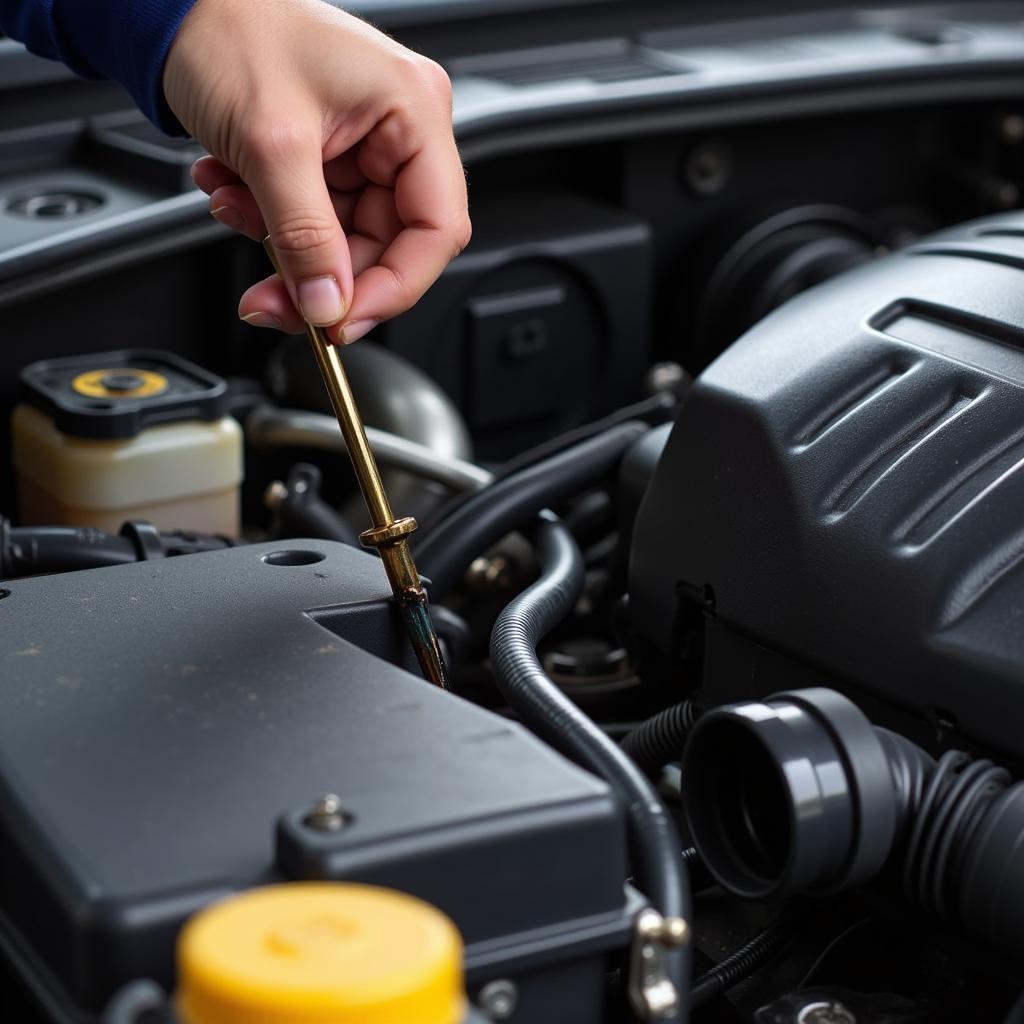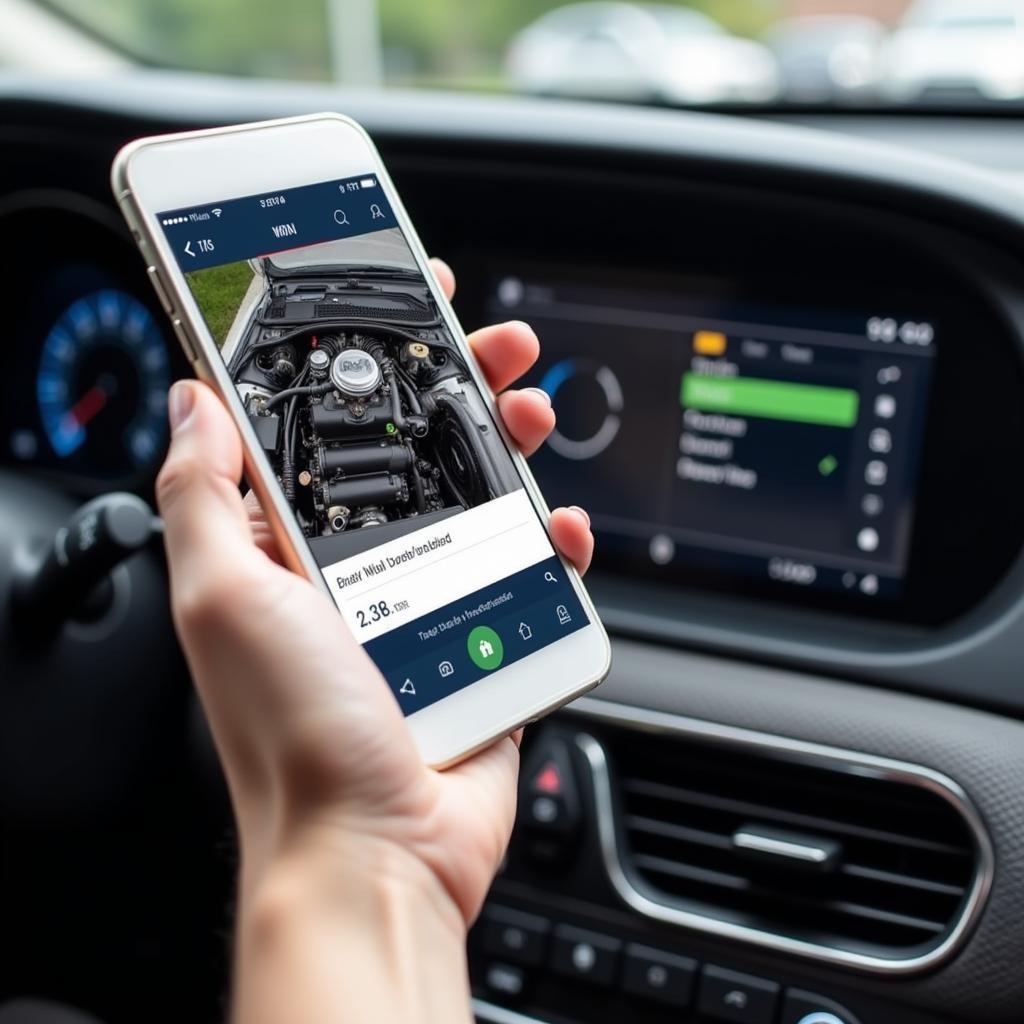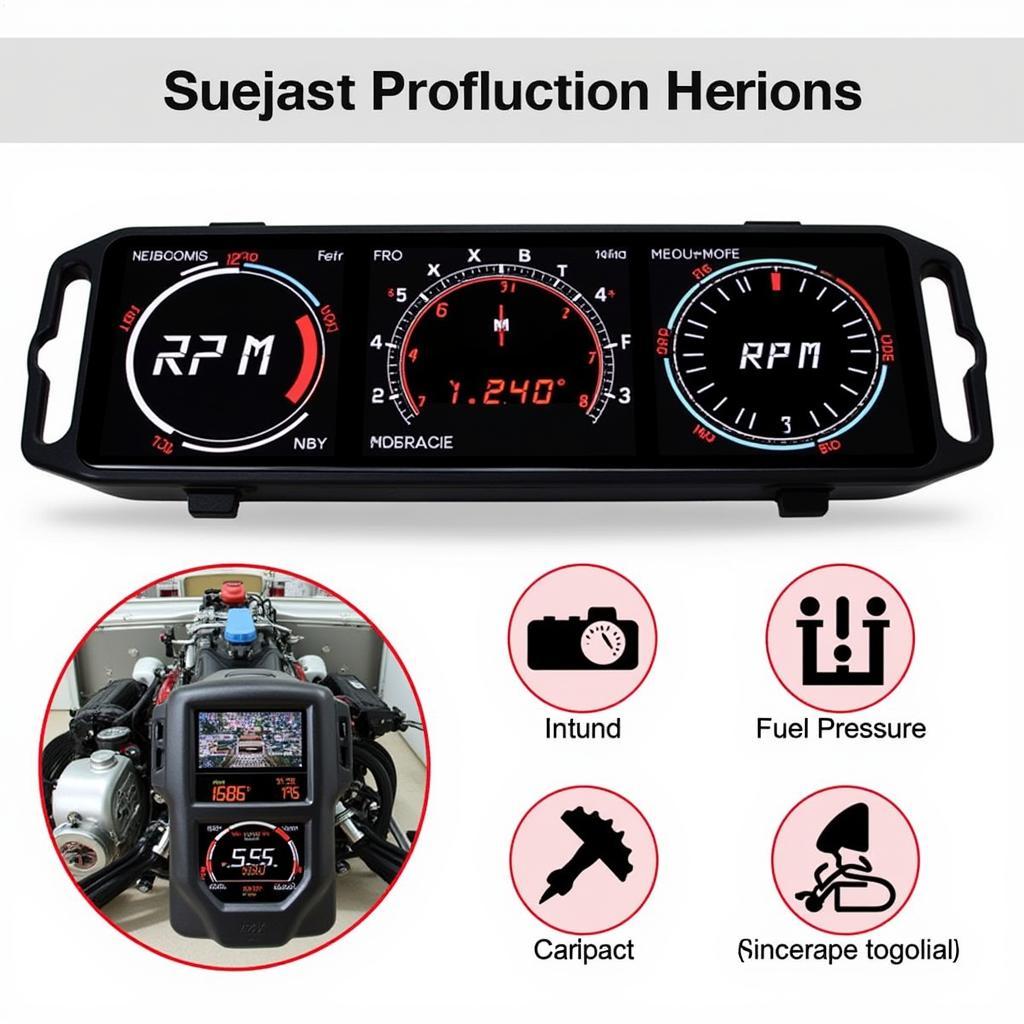Checking your car engine details is crucial for maintenance, repairs, and understanding your vehicle’s performance. Whether you’re troubleshooting a problem, considering upgrades, or simply curious about what’s under the hood, knowing how to access and interpret engine information is invaluable. This guide provides you with everything you need to know about checking your car engine details.
Understanding the Importance of Engine Information
Knowing your engine’s specifications can help you make informed decisions about maintenance, such as selecting the correct oil type and viscosity. It can also be critical when diagnosing issues, allowing you to pinpoint potential problems more effectively. Furthermore, understanding your engine’s details can help you assess its performance potential and make informed choices about modifications or upgrades.
 Checking Engine Oil
Checking Engine Oil
Different Ways to Check Your Car Engine Details
There are several ways to access your car engine details, each offering varying levels of information. Let’s explore some of the most common methods:
Checking the Owner’s Manual
Your car’s owner’s manual is the first place you should look for basic engine details. It usually provides information such as engine type, displacement, horsepower, and recommended fuel type. While it may not provide the most comprehensive information, it’s a readily available and easy-to-understand resource.
Decoding the VIN (Vehicle Identification Number)
Your VIN is a unique 17-character code that contains a wealth of information about your vehicle, including engine details. You can find your VIN on the driver’s side dashboard, doorjamb, or insurance card. You can use online VIN decoders or get car details from vin number to access detailed information about your engine.
 Decoding VIN Number for Engine Details
Decoding VIN Number for Engine Details
Using Diagnostic Tools and Apps
Various diagnostic tools and apps, including OBD-II scanners, can provide real-time data about your engine’s performance. These tools can reveal information about engine speed, temperature, fuel pressure, and various sensor readings, which can be valuable for diagnosing problems. Some advanced tools even provide access to fault codes, which can pinpoint specific issues within the engine’s systems. Check out our article on car details api for more information.
Consulting a Mechanic
If you’re unsure about interpreting engine information or need a professional assessment, consulting a qualified mechanic is always a good idea. They have the expertise and tools to perform a thorough inspection and provide accurate information about your engine’s condition and specifications.
What Information Can I Find?
When checking your car engine details, you can expect to find information such as:
- Engine Type: (e.g., Inline-4, V6, V8)
- Displacement: (Engine size measured in liters or cubic centimeters)
- Horsepower and Torque: (Measures of engine power and rotational force)
- Fuel Type: (e.g., Gasoline, Diesel, Hybrid)
- VIN: This crucial identifier can reveal even vin car details.
- Engine Code: A specific code that identifies the engine variant.
 Engine Information Display on a Diagnostic Tool
Engine Information Display on a Diagnostic Tool
“Knowing your engine’s specifics is like knowing your body’s vital signs,” says John Smith, a seasoned automotive engineer. “It empowers you to make the best decisions for its health and longevity.”
Conclusion
Checking your car engine details is essential for responsible car ownership. By understanding how to access and interpret this information, you can ensure proper maintenance, diagnose problems effectively, and make informed decisions about your vehicle’s future. Remember to consult your owner’s manual, utilize VIN decoders, consider diagnostic tools, and seek professional advice when needed. Knowing your engine empowers you to keep your vehicle running smoothly and efficiently for years to come. You can also check out car detailing in cape coral for related services. Don’t forget about this helpful resource: 28030612 more details on https www.carid.com cart.php.
FAQ
- Why is it important to Check My Car Engine Details? Knowing your engine details helps with maintenance, repairs, and understanding performance.
- Where can I find my car’s VIN? The VIN is typically located on the driver’s side dashboard, doorjamb, or insurance card.
- What does the engine displacement tell me? Displacement indicates the engine’s size and can often relate to its power output.
- What are some common diagnostic tools for checking engine details? OBD-II scanners are common tools for accessing real-time engine data.
- When should I consult a mechanic about my engine? If you’re unsure about interpreting engine information or experiencing persistent issues, consult a mechanic.
- How can knowing my engine details save me money? Proper maintenance based on accurate engine information can prevent costly repairs down the road.
- Can I find my engine code in the owner’s manual? Yes, the owner’s manual usually lists the engine code along with other specifications.
Need help with checking your car’s engine details? Contact us via WhatsApp: +1(641)206-8880 or Email: [email protected]. Our 24/7 customer service team is ready to assist you.

Leave a Reply